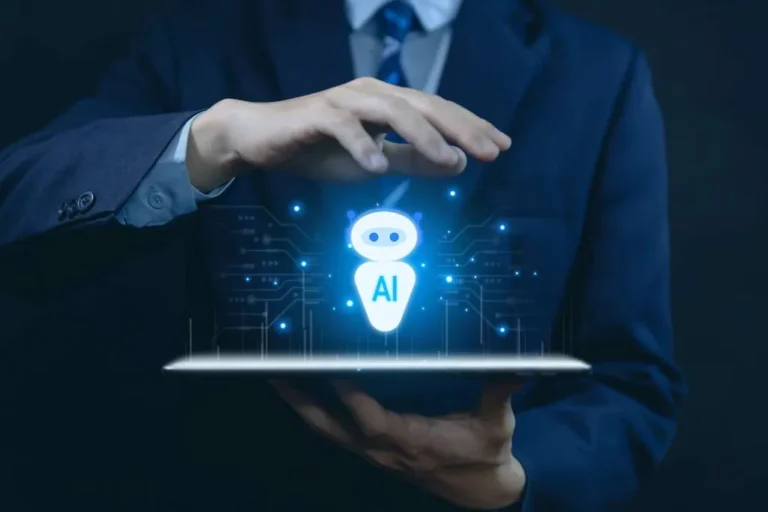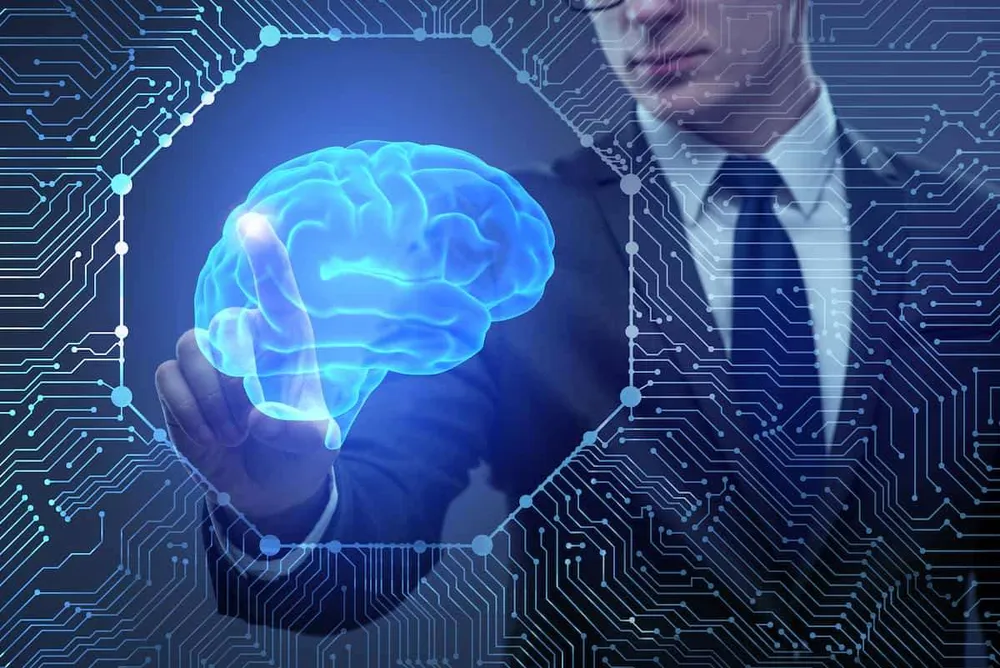What is Sentient AI and What Are Its Benefits

Today, AI is everywhere. It’s changing the way we live and work. Companies are already automating tasks and making smarter decisions with the technology. Whether it’s improving healthcare or streamlining workflows, AI has a big impact. But with all this progress, one question that keeps cropping up is: Can AI become truly intelligent? Right now, the answer is no. It doesn’t “think” or “feel” the way humans do. However, as technology advances, the idea of sentient AI, when machines acquire human-like awareness, is becoming a serious topic of discussion.
So, what exactly does it mean to AI to be intelligent? And shall we ever reach a point where machines truly understand the world exactly as humans do? Read on to learn more.
What is Sentient AI?
When discussing sentient AI, we are talking about the idea of a machine which has reached the point where it thinks and feels the same as a real person. It figures out where it is, emotionally processes the experience, and even develops its own sense of awareness. But at the moment, it is difficult to say whether technology will achieve such powers in the near future.
Theoretically, such an advanced machine would have the qualities distinguishing humanity: self-awareness, creativeness, and the ability to perceive emotions such as happiness or fear. It’d learn, adapt, and even build relationships not only with mankind but also with other AI systems.
However, so far, no AI of such a level exists. And the question is not only whether it will ever be able to achieve consciousness but also how it changes society and our understanding of the very nature of the mind. The more AI develops, the more acute these discussions become.
Experts agree: AI is not conscious in the human sense. It doesn’t feel, isn’t aware of itself, and doesn’t perceive the world as humans do. However, cognitive computing has made it increasingly capable of simulating human-like reasoning. In particular, some even start to believe chatbots like ChatGPT are capable of feeling or understanding.
One of the most famous cases is the story of previously employed Google engineer Blake Lemoine. He alleged the language model for dialog applications (LaMDA)(now Gemini) had become intelligent. The claim cost him his job, but left the question open. Meanwhile, scandalous stories about chatbots which allegedly deceive, threaten, or confess their love to each other appear on the Internet from time to time.
But does it mean, artificial super intelligence is truly “sentient”? Not quite—many AI-generated responses are hallucinations. They present misleading or entirely fabricated information while sounding highly convincing.

We are confident that we have what it takes to help you get your platform from the idea throughout design and development phases, all the way to successful deployment in a production environment!
What Is Sentience In This Case?
Defining sentience isn’t as simple as defining something like gravity or the weather. It’s not something you measure with a tool or a formula. Instead, understanding sentience relies on philosophy, psychological research, and much interpretation. Grace Lindsay, a neuroscientist at NYU, points out sentience isn’t something we empirically quantify — we only try to make sense of it through different perspectives.
Some define sentience as the ability to comprehend and interact. Others link it more closely to consciousness—the personal, subjective experience of existing. Philosopher Thomas Nagel describes it as the feeling of “what it is like” to be something, while cognitive scientist David Chalmers suggests sentience is tied to phenomenal consciousness. It means a being experiences emotions, both good and bad, and uses those experiences to shape future decisions.
If AI were truly sentient, it’d operate on its own terms, setting its own goals rather than just executing tasks it was designed for. Psychiatrist Ralph Lewis explains a sentient AI would have independent agency. It wouldn’t just follow pre-programmed instructions or outcomes emerging from its initial setup.
But no matter how sophisticated AI gets, it still sticks to the script. Even if it seems creative or emotional, it’s just clever mimicry. AI models rely on natural language generation to process and generate true-to-life text using patterns from existing content. But large language models (LLM) don’t actually understand what they’re saying or feel anything behind the words.
Benefits of Sentient AI
A 2020 study shows: AI could play a major role in addressing 79% of the United Nations’ Sustainable Development Goals. With predictive analytics, it is possible to solve problems with climate change and global stability. AI has the potential to fix issues, not exacerbate them. And if AI ever becomes intelligent, its impact will be greater.
Sentient artificial intelligence resolves all our problems, as some think. Even if it doesn’t benefit all the parts of life, there are a lot of areas where particularly smart AI shows promise:
- Healthcare. AI analyzes medical data at a level we never could. With accurate data, it not only detects diseases but also prevents them from occurring, which is often a major challenge in modern medicine.
- Education. AI learns the way different students study and creates personalized educational paths. ChatGPT is already helping with language learning, and over time, it could create truly breakthrough learning.
- Scientific discovery. AI processes vast amounts of data and simulates complex systems. Where we struggle to make breakthroughs, it accelerates scientific advances.
- Economic efficiency. In industries such as manufacturing, transportation, and logistics, where productivity is key, AI may help reduce costs and waste.
- Social support. Many people feel isolated due to one reason or another. AI could be a support system which provides moral support and human-language communication whenever it is needed most.
The potential benefits of sentient AI drive the ongoing research in the field. However, as with any powerful technology, ethical implications are a must if we want the tech to serve us in the best possible way.

Drawbacks of Sentient AI
Once business owners think about intelligent AI, it brings to mind changes in a positive way. But it also brings with it a lot of questions and concerns. Of course, it could signal the beginning of groundbreaking achievements that are bound to change our world. But for better or worse? With these capabilities come serious risks. If machines think for themselves and consider us a threat, then it’ll no longer be a business benefit. It’ll be important to be able to stop and control AI.
A threat to the planet’s future?
There’s a good chance AI becomes untrustworthy once it gains consciousness. If the moment comes, it starts to think we’re a threat, and it’s hard to predict what it’ll decide to do (given the amount of data it has and how heavily it’s used in everyday life).
Unreliable and unpredictable behavior
A conventional AI follows programmed instructions. But an intelligent system can go against the normal course. It’s bound to reject tasks, redefine their purpose, or act against our interests. Similarly, if we are not in the mood to do something, an AI could prioritize its own needs over our tasks.
Ethical and moral challenges
AI is constantly evolving, and with it comes more ethical issues. Within companies, there is talk about making it transparent and unbiased. Usually, it falls on the shoulders of managers to regulate the issues. However, the development does not stop and more questions arise about what happens if we lose control or do not regulate AI enough.
So, AI which understands itself and everything around it, sounds similar to a movie script and not necessarily a positive one. It may change things for the better, but we should never discount the possibility where things might not go as we want them to. Though there are a bunch of true perks to business and numerous fields, we have to ask ourselves the real question: should we try to make a smart machine a reality?
Are There Case Studies of Truly Sentient AI?
Sentient AI is a hot topic in the media and has sometimes been claimed to exist. The truth is, no AI today is actually self-aware. We have incredibly advanced systems mimicking human-like responses, but they don’t truly understand things. Although certain models have generated discussions on sentience, they are still far different from the genuine thing. Though there’s no truly smart AI, let’s examine some of the more remarkable instances.
Google’s LaMDA
LaMDA is Google’s advanced chatbot system. It made headlines shortly after engineer Blake Lemoine claimed it gained consciousness, citing phrases “I am aware of my existence” and its descriptions of emotions. Yet, Google and AI experts dismissed the claims. They explain: LaMDA puts out responses built on patterns in the training dataset, not genuine understanding.
OpenAI’s GPT Models
ChatGPT is one of the best generative AI (genAI) models. It writes text or creates an image, so it won’t take much time, but it looks very realistic. When you ask to do something or consult, it gives answers that are as if they were from a real specialist. But usually, it is just a model. It is just a programmed program, as it does not think without someone’s help.
Google DeepMind’s AlphaGo
AlphaGo showed what technology is capable of when it beat the best players in Go. Deep learning helped it learn and act in ways people would never have thought of, opening up new approaches. But there’s no secret to it except the skilled programmers who created it. AI didn’t make decisions on its own in the true sense of the word—it just acted on algorithms.
IBM’s Watson
In February 2011, IBM’s Watson won Jeopardy! It beat champions Brad Rutter and Ken Jennings. Watson could understand and answer questions posed in natural language. The development went on to be used in finance, weather forecasting, and other fields.
These cases illustrate to what extent intelligent AI might be, but at the same time, they show we are still far from getting the technology that will come close to us. Chatbots and virtual assistants speak and write similarly to real people—but right now, it is not the level at which we should sound the alarm. Among experts, the opinion is: If AI does become hyper-intelligent, it won’t be in the next few decades.
Conclusion
Right now, most AI experts doubt whether or not sentient AI is even possible. At least with our actual tech and understanding of mental processes. The truth is, we don’t fully recognize what makes something aware, let alone replicating it in a machine. Big brands such as Google, Apple, Meta, and Microsoft aren’t even trying to create sentient AI. Their focus is on artificial general intelligence (AGI). It’s the one to perform any intellectual task that a human does. Sentience, if it ever happens, is a challenge in the distant future.
The idea of AI gaining self-awareness is engaging, especially among those interested in pushing the limits of technology. We may not yet have conscious machines, but businesses today are already turning to AI to serve real-world applications.
Global Cloud Team specializes in turning AI concepts into scalable, high-performance solutions. Whether you need custom Large Language Model (LLM) training, AI-driven software enhancements, or enterprise-grade machine learning solutions, our team of experts helps deploy your AI projects in weeks, not months. Schedule a call to discuss your case.
Top Articles
Container vs VM (Virtual Machines): How Do They Differ?
I am here to help you!
Explore the possibility to hire a dedicated R&D team that helps your company to scale product development.






